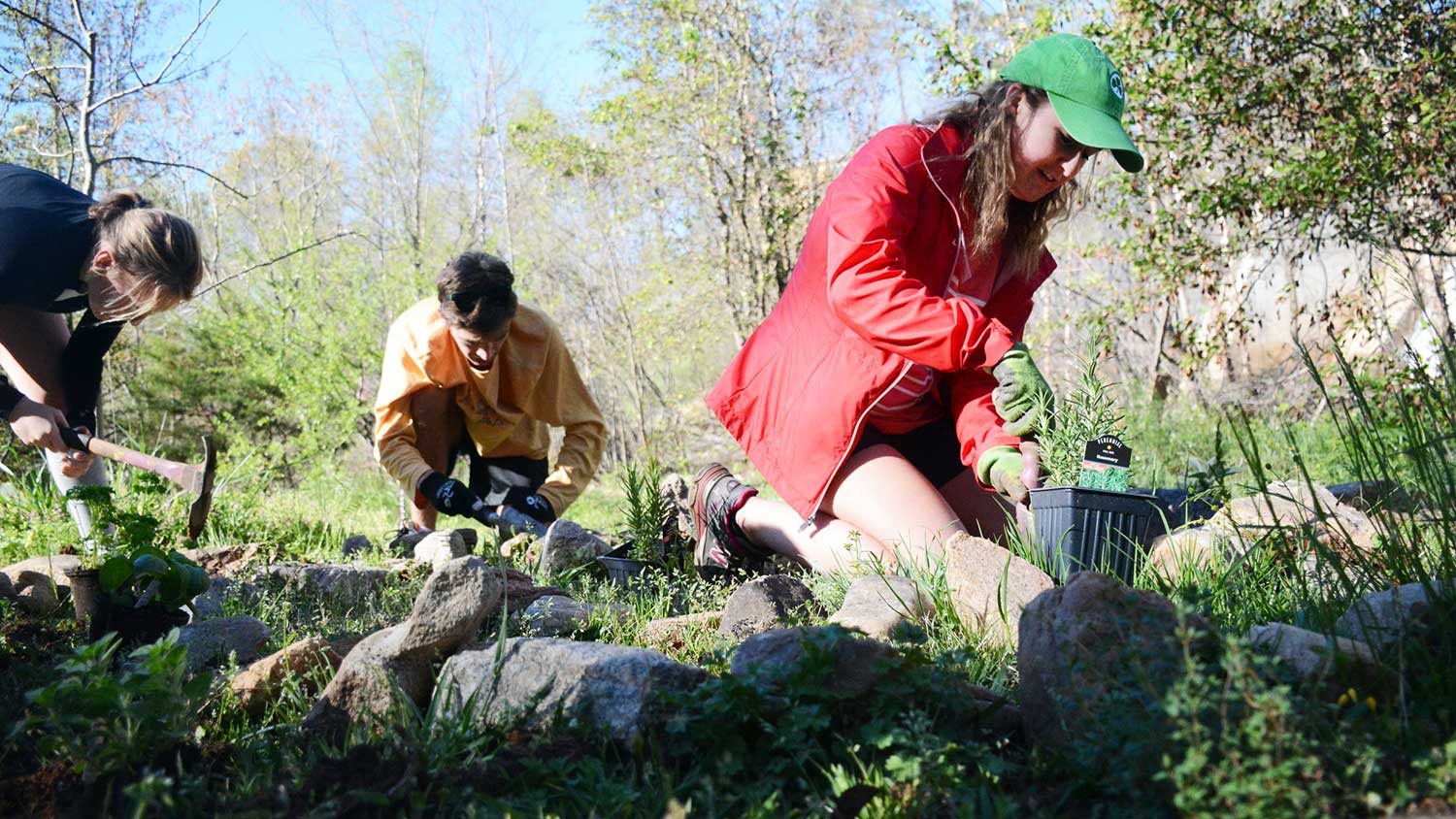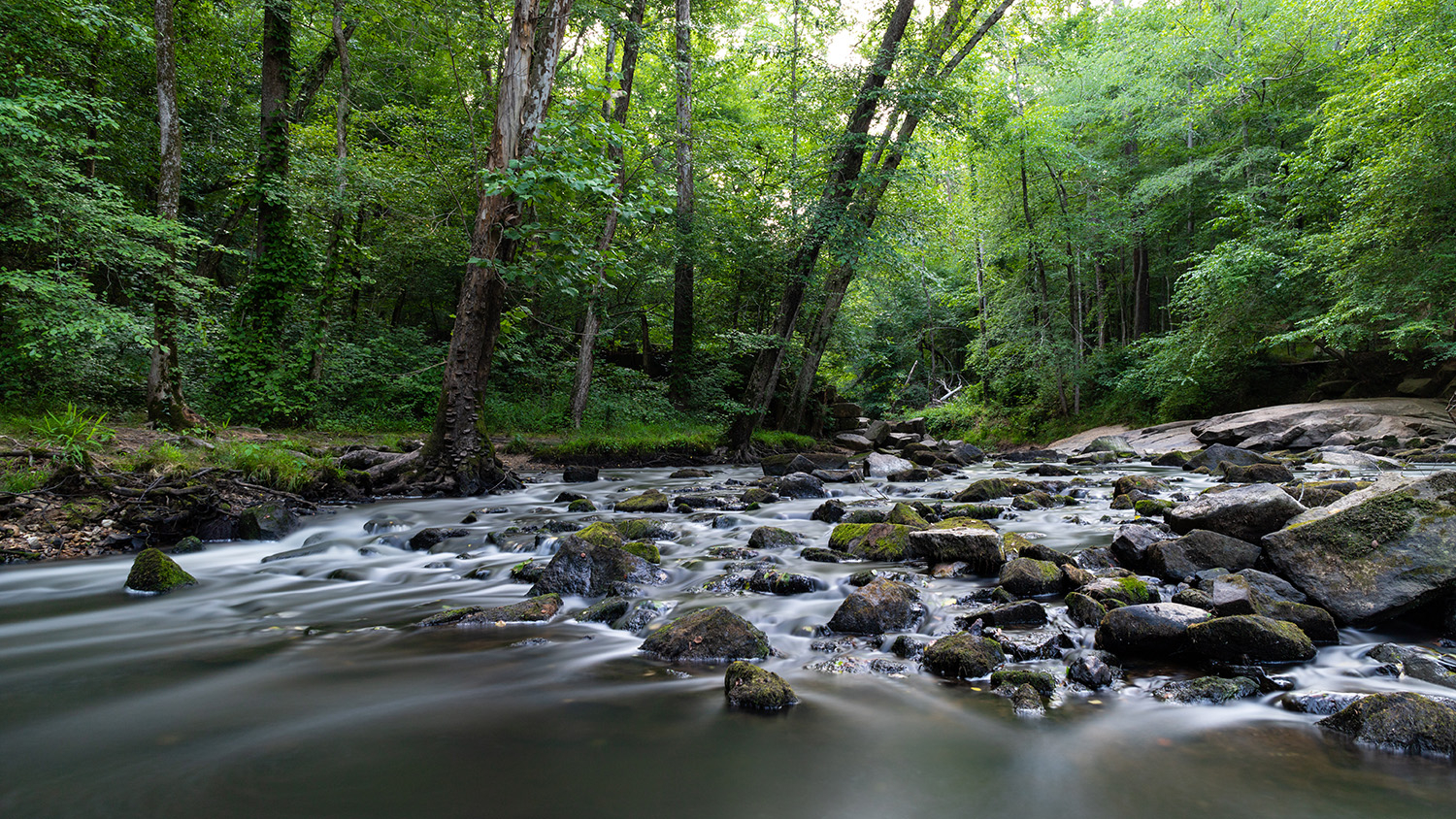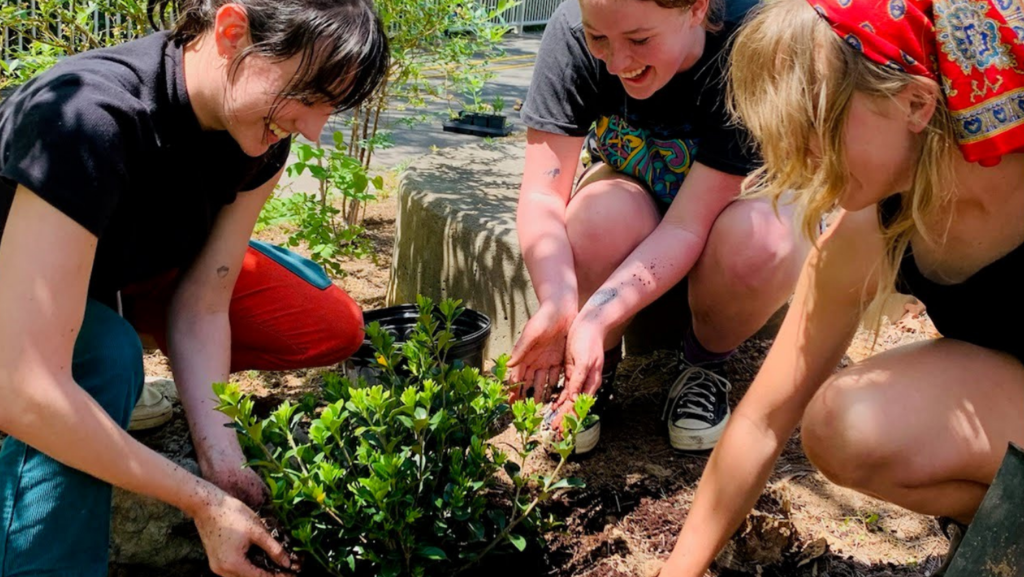

Community
“Community: In how we respect and care for all at our university, value the contributions of every member of our Wolfpack, promote health and well-being, and help one another succeed.”
— NC State University Core Value
NC State University promotes the well-being of both people and the planet. Clean air, water, nutritious foods and safe spaces are essential for thriving communities. That’s why NC State is at the forefront of research and action to ensure a healthy, sustainable future for all.

Global Community
Opportunities that empower the next generation of global leaders.

Campus Community
Programs and services that foster an inclusive campus community.

Sustainable Service
Engage in a sustainability-related service project.
NC State is pioneering innovative solutions to solve local and global challenges. This research explores the impact of the environment on human health, including:
- Global One Health Academy builds new collaborations across disciplines to improve the health of plants, animals, biodiversity and human society.
- Center for Human Health and the Environment explores how human health at the individual and population level is impacted by environmental factors.
- Initiative for Community Growth and Development forms partnerships across the arts, science, practicum-based academics and sponsored research to build resilient communities.
- Wicked Problems, Wolfpack Solutions encourages incoming students to connect various disciplines to grand challenges
- Sustainable Futures Initiative fosters transformative research to provide forward-oriented solutions to the world’s most pressing problems.
- NC State University Libraries Special Collection on Environmental Justice provides new perspectives on the relationships between animals, wildlife, industrialized agriculture and climate adaptation.
The NC State Sustainable Development Goals Course Inventory lists academic courses related to learning about society, economy and the environment.
Search the SDG Course Inventory
Services accessible to NC State students, staff and faculty include:
- Feed the Pack Food Pantry helps meet the food needs of the NC State community with dignity and respect.
- Pack Essentials supports students in need of food, housing, financial and educational security.
- Wolfpack Styled Professional Closet ensures that all students, regardless of their financial situation, have the opportunity to dress appropriately for professional occasions.
- Campus Thrift Store provides students with affordable, accessible and sustainable fashion on campus.
- Menstrual Equity Initiative offers free menstrual products in dispensers installed across campus.
Programs available to the Wolfpack community include:
- Wolfpack Wellness empowers the campus community to flourish in aspects of purpose, financial security, physical health, emotional and social well-being and community engagement.
- Drop-in Spaces provides environments where students can casually find connection and support.
- Center for Environmental Farming Systems develops and promotes just and equitable food and farming systems that conserve natural resources, strengthen communities, improve health outcomes, and provide economic opportunities in North Carolina and beyond
- NC State Extension is the trusted, go-to resource for connecting research and education to the communities, economies and families of our state, creating prosperity for all North Carolinians.
- Numerous programs offered by the Office for Institutional Equity and Diversity seeking to create an NC State experience where everyone feels at home as part of the Wolfpack.
- Community-driven Land Acknowledgment honors and acknowledges North Carolina’s Indigenous communities
NEWS & FEATURES | More


Spend Time Investing in Your Financial Literacy

Open Space Has Increased in the Triangle, But There’s Still Work To Be Done

Financial Resilience Community Cohort Announced

It’s Peach Season in North Carolina
